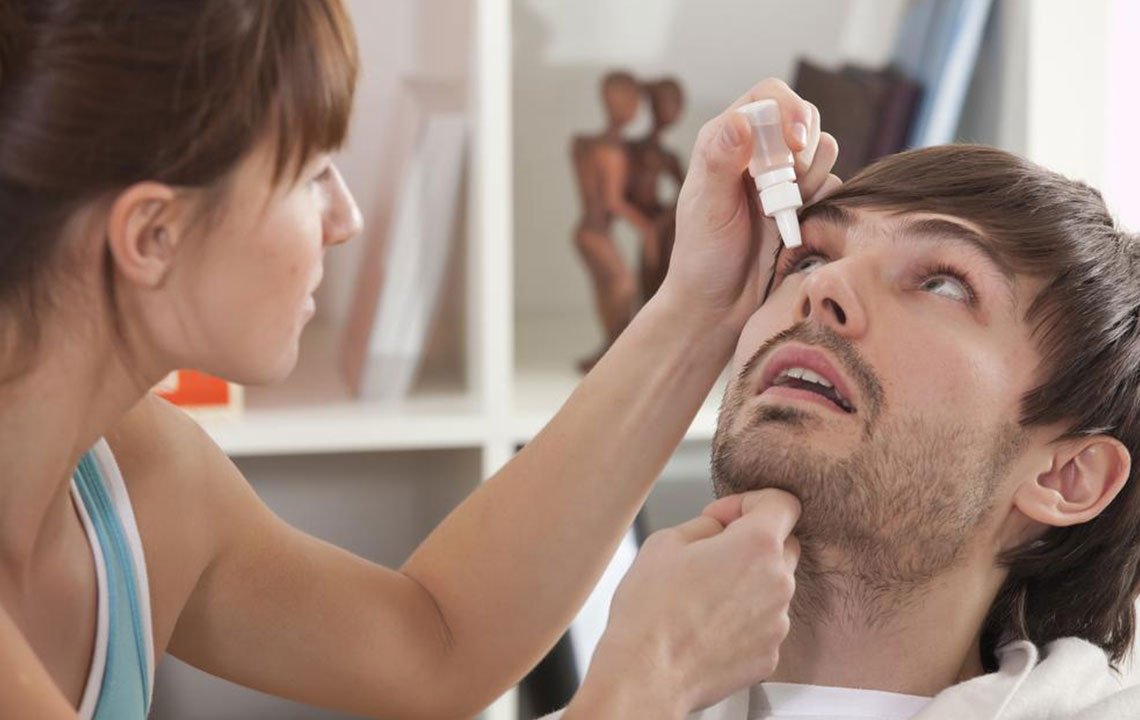A Brief Overview of Dry Eye Syndrome

Dry eye syndrome is a disease that is commonly characterized by a condition in which eye fails to make enough tears or tears quick evaporate. Dry eyes become red and swollen, and this causes pain and irritation in the eye of a sufferer. Dry eye syndrome is also called keratoconjunctivitis sicca or dry eyes. People 50 years or older are prone to suffer from this syndrome.
There are 5 million Americans suffering from dry eye syndrome.
If someone has chronic eye allergies, thyroid diseases, rheumatoid arthritis, lupus or any other immune system disorder, exposure to keratitis or vitamin A deficiency, they are at risk of contracting dry eye syndrome than those who do not have any of the above-mentioned conditions.
Symptoms
The symptoms of dry eye syndrome are usually mild in case of most people. Severe cases of dry eye syndrome are painful and difficult to treat. Symptoms that are commonly found in people suffering from dry eye syndrome are:
– Feeling of dryness in eyes.
– Grittiness and soreness in eyes
– Red eyes
– Eyes burning with inflammation
– Eye sticking together on waking up
– Temporary blurred vision
– Watering eyes
– Sensitivity to light
If you think your symptoms are much more serious, visit your optometrist or GP.
Causes of dry eye syndrome
Dry eye syndrome can occur in people whose eyes fail to produce tear the natural way. There are a number of reasons leading to this condition. There are multiple reasons causing this problem. Here are the causes of dry eye syndrome.
If you live in a hot and windy climate, there is a likelihood that you may suffer from the condition. A climate that is hot and windy is also often dry. Usage of contact glasses regularly can cause dry eye syndrome in some people. This is why it is recommended to buy contact lenses that suits and are of good quality. There are a number of medical conditions that also trigger dry eye syndrome in people. Medical conditions such as blepharitis, which is inflammation of eyelids, is also a cause of dry eyes in people.
Dry eye syndrome can also result from side effects of various medications. These medications include antihistamines, beta-blockers, diuretics, and antidepressants. Hormonal changes in women due to taking a contraceptive pill can also cause dry eye syndrome. This condition can affect people falling in different ages. The chances that you may develop dry eye syndrome increases with increase in age. It has been absorbed that one in three people above the age of 65 suffers from dry eyes syndrome. Dry is common in females.
Associated problems
Dry eye syndrome does not cause any serious problem in people. It can be uncomfortable. There are two main complications that arise with dry eye syndrome in people. They are as follows:
Conjunctivitis: Inflammation related to conjunctiva and transplant layer of the cells that usually cover the white part of the eyeballs and the inner surface of eyelids. Most cases of these conditions are mild and thus may not require specific treatment.
Inflammation of the cornea: In very rare cases, untreated dry eye syndrome can cause damage to the surface of the cornea, which is also known as keratitis. This type of damage can make cornea susceptible to infection and ulceration. This could also cause much serious damage to the eye of a sufferer.
Seek medical help
If you think your dry has become unbearably painful or uncomfortable, do not hesitate to consult an optometrist, who will examine and check the causes of your dry eye. He can also refer you to an eye specialist. You can also consult your optometrist or GP in case of severe symptoms. You can also visit the nearest accident and emergency department for help.
Treating dry eye syndrome
Though dry eye syndrome is not a serious problem, there are treatments available to ease the problem. You can apply lubricants such eye drops to your eyes to replenish the lost moisture. If there is any inflammation, medications are available for relief. In most severe cases of dry eye syndrome, surgery is recommended to prevent tears from draining frequently. Dry eye syndrome can be triggered by an underlying condition. Therefore, the ultimate solution is to first cure that condition.
General instructions
There is much you can do all by yourself to prevent dry eye syndrome from occurring and to reduce its symptoms. Few of those DIYs are:
Protection from dust: You can try keeping your eyes from any dust particles by applying various means.
Avoid radiation: Keep adequate distance from your computer or laptop screens. You can also wear anti-radiation classes made to avoid artificial radiations.
Make use of humidifiers: This is to moisten the air.
Balanced diet: Follow a healthy and balanced diet that is full of omega-3 and omega-7 fats.

